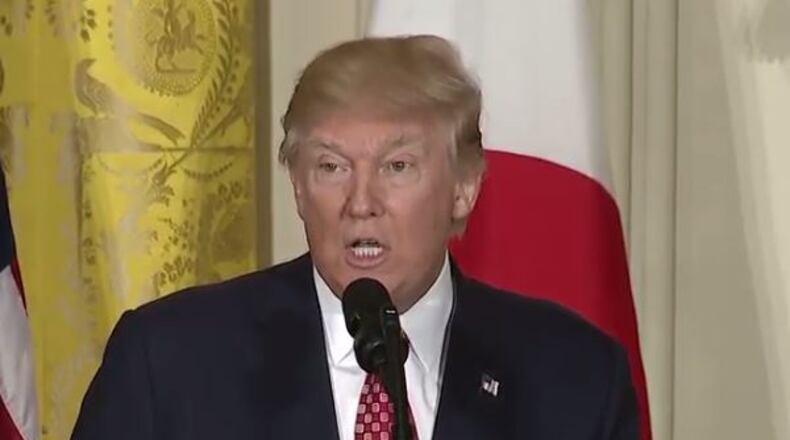The White House on Friday evening was sending out conflicting signals on how the Trump Administration would deal with this week's legal setback on the President's controversial immigration order, as some officials said there would be no immediate appeal to the U.S. Supreme Court, while others said all options were on the table.
"We will win that battle," the President told reporters aboard Air Force One as he flew with the Japanese Prime Minister to Florida.
"We also have a lot of other options, including just filing a brand new order," Mr. Trump added, saying something new might be released next week.
"Perhaps Monday or Tuesday," he said.
Several legal options were readily available, depending on the strategy choice by the President:
1) Appeal directly to the U.S. Supreme Court
2) Go back to the federal district court in Seattle that originally blocked the Trump order
3) Write a new order and start over.
"We are going to keep our country safe," Mr. Trump said at a White House news conference with the Japanese leader.
While the White House and Department of Justice were evaluating their legal choices, the Ninth Circuit offered up a surprise of its own, revealing that a judge on that circuit had asked for an internal vote, to see if the Trump immigration matter should be reheard by all of the judges, known as an en banc hearing.
Credit: Jamie Dupree
Credit: Jamie Dupree
The Ninth Circuit offered this explanation of what the process entails.
It wasn't clear if the Justice Department would take up the Ninth Circuit on the idea, or not.
The bottom line is that the President's plan remains on hold to temporarily halt refugee admissions and to prevent any arrivals from seven different Muslim nations.
About the Author
The Latest
Featured




